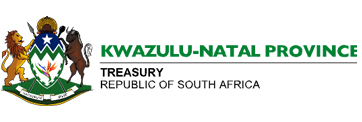Frequent small thefts can add up to a lot of money. If you knew that someone was stealing from the department, what would you do? |
In the world of raising capital, time is money—and guesswork is expensive. Whether you're a real estate syndicator, fund manager, or entrepreneur with a project ready to launch, your biggest bottleneck isn’t the idea or the opportunity—it’s finding the right investors.
|
Do you know of anyone who might be stealing or taking unfair advantage of the department? |
These aren’t just contact lists. They are curated blueprints that connect you with individuals who are not only capable of investing but also interested in doing so. Let’s explore what makes these lists powerful, how to use them effectively, and why they’re the hidden key to scaling your investments faster and smarter.
|
Suppose someone who works in the department decided to steal or commit fraud. How could he or she do it and get away with it? |
|
In your opinion, who is beyond suspicion when it comes to committing fraud in the department? |
|
Has anyone asked you to commit an improper, illegal, or unprofessional act(s), or a breach or circumvention of a policy, procedure, or practice? If so, please provide details. |
What Is an Accredited Investor List?
An accredited investor list contains contact information for individuals who meet specific financial criteria—typically, a high net worth or annual income—that legally qualifies them to invest in private offerings, such as:
Hedge funds
Private equity
Real estate syndications
Startups and venture deals
But here’s the bigger picture: accredited investors are often already familiar with investment strategy, risk, and returns. They’re not learning as they go—they’re looking for opportunities that make sense. That means you're starting conversations on solid ground.
The real value of an accredited investor list isn’t just in the size of each contact’s wallet—it’s in their mindset.
|
Have you witnessed an improper, illegal, or unprofessional act(s), or a breach or circumvention (by-passing) of a policy, procedure, or practice? If so, please provide details. |
Understanding the Real Estate Investor List
While accredited investors cover a range of asset classes, a real estate investor list narrows the focus to individuals who are actively investing in real estate deals. These might include:
Fix-and-flip investors
Multifamily syndicators
Commercial property buyers
Passive investors in real estate funds
Private lenders and hard money partners
What sets this list apart is the investor’s interest in property-specific opportunities. They already understand things like ROI, cash-on-cash return, equity splits, and market cycles.
That means you’re not explaining real estate basics—you’re showing them why your deal is the one worth their attention.
|
Are there any areas where you believe controls are not sufficient to catch someone stealing money or other assets in a timely manner? Please explain. |
Why These Lists Outperform Traditional Lead Generation
Let’s face it: traditional lead generation is slow, inconsistent, and often casts a wide net with little return. Ads, social posts, and generic cold emails may generate interest—but they rarely bring you in front of qualified investors who can move quickly.
Using a curated accredited or real estate investor list changes that dynamic entirely.
Instead of educating cold leads from scratch, you're engaging with people who are:
✅ Already investing
✅ Comfortable with deal structure
✅ Ready to fund when the numbers align
✅ Open to introductions and referrals
✅ Often repeat players in the investment space
That’s how you shift from pitching to partnering.
|
Do section heads and supervisors demonstrate integrity and honesty in all of their conduct? (Describe examples of such conduct.) |
Key Benefits of a High-Quality Investor List
So, what makes a strong investor list worth the investment? It’s all about relevance and readiness.
A quality list typically includes:
Full name and verified email address
Investor type (accredited, sophisticated, institutional, etc.)
Location or region of interest
Investment preferences (real estate, tech, private equity, etc.)
Minimum investment range
Portfolio or deal experience
Communication preferences (email, phone, text)
The more detailed the list, the easier it is to create personalized campaigns that resonate.
|
Has anyone ever threatened you or intimidates you, regarding your disclosure of any potential workplace impropriety? (Describe) Have you reported these incidents and was any action taken? |
Nurture vs. Push: The Long Game of Investor Relations
Here’s a mindset shift worth adopting: your investor list isn’t just a tool to “raise funds”—it’s the foundation for long-term relationships.
Many successful capital raisers treat their investor lists like personal networks. They call, check in, and follow up. They ask about investor goals and align opportunities accordingly.
When you use your accredited investor list and real estate investor list as relationship platforms instead of marketing gimmicks, you’ll see:
Higher response and engagement rates
More repeat investors
Bigger check sizes over time
Referrals to like-minded individuals
That’s the power of nurturing over pushing.
|
Because of your employment position, do you feel pressure not to report anything you feel is not right? If so, can you suggest a method to report your concerns. |
Growing Your Own Investor List Over Time
Even if you start with a purchased or third-party list, it’s smart to build your own pipeline as you go.
Here are a few ideas to organically grow your investor base:
Host live or virtual webinars about your market
Share investment insights on LinkedIn and niche forums
Offer lead magnets like deal breakdowns or due diligence checklists
Collect emails at networking events or through your website
Ask current investors for referrals
Just like planting seeds, it takes time. But with the right strategy, your list becomes one of the most valuable assets in your business.
|
Enterprise Keywords |
|
|
|
|

